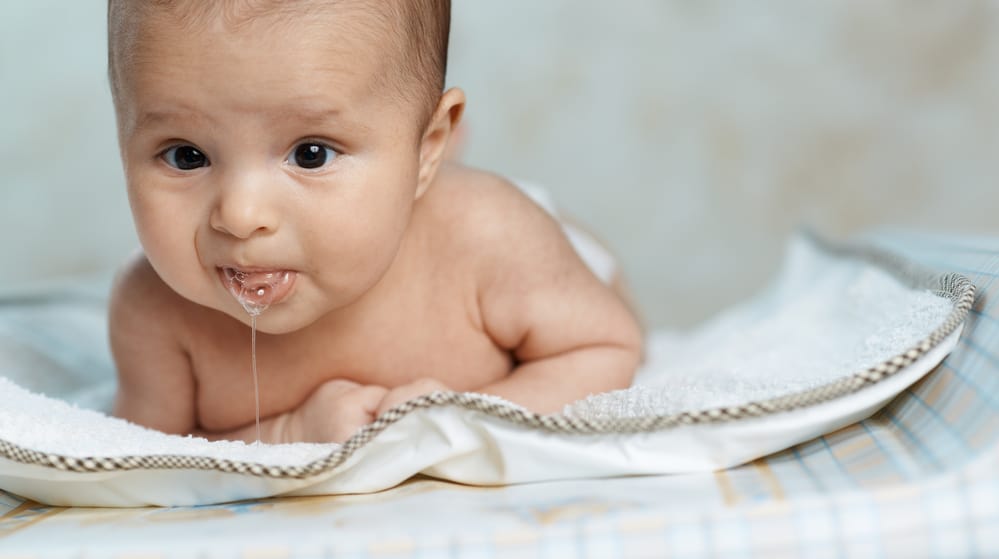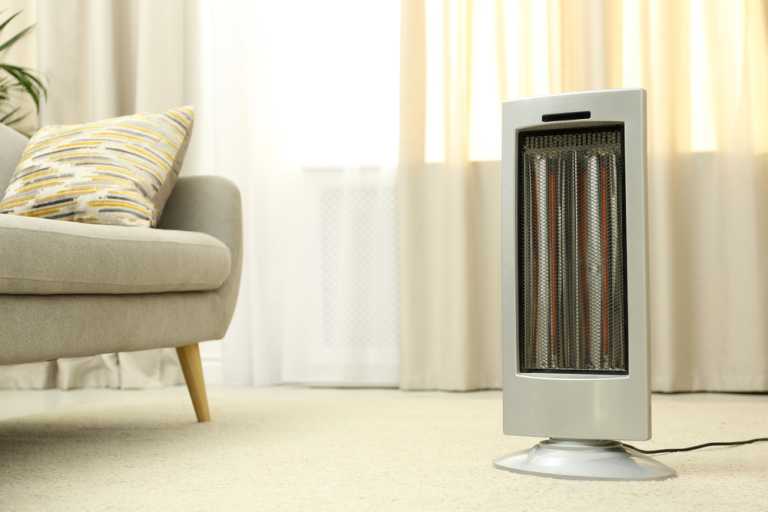Babies can leave parents guessing more often than not. However, if your baby is spitting up clear liquid, you can relax and take it easy because it is common. Most babies spit up clear liquid when teething or after eating. In most cases, the clear liquid they are spitting up is just saliva; you don’t need to worry.
Still curious why Baby might be spitting up clear liquids or want to know if it is time to call the doctor? Here’s what you need to know.
Reasons your baby might be spitting up clear liquid:
- They are learning how to swallow. Sometimes, baby just doesn’t swallow their saliva as often as adults do and the result is lots of spit-up dripping down their chin or neck.
- They are having a bit of fun. Babies are learning that actions have consequences and sometimes those consequences are fun. Baby might be experimenting with spitting and blowing, causing little bubbles. This is a completely normal and developmentally appropriate sensory action.
- They are teething. If a baby is getting new teeth, their gums are likely to be sore and red. A main symptom of teething is extra saliva production, causing them to drool even more than usual.
Other Types of Spit Up
If you notice that your baby is spitting up liquid that is not clear, it is still relatively normal.
- Spit up that is mostly clear with chunks of white: this typically happens after feeding. It just means that the baby might have swallowed air by eating too quickly and their stomach could not handle it.
- Spit up that is primarily milky white: again, this typically happens after feeding. This is mostly milk mixed with saliva.
- Spit up that is thicker than saliva: this is likely extra mucous. You might notice more mucous if a baby has a cold or if teething is in play. Please pay attention to anything unusual regarding your child’s behavior; this could indicate they are ill or their immune system is working hard to keep them from getting sick.
When to Worry About Spit Up
While most spit-up is common and is indicative of a baby just trying to learn how to breathe, eat, and swallow, there are some times when spit-up can indicate that something else could be going on. Keep your eyes peeled for any of these things that could indicate a potential problem:
- Spit-up paired with a fever, loose stools, or a more fussy baby
- Spit-up that is thick mucus and makes it difficult for Baby to breathe through their nose or mouth
- Spit-up that is projectile, meaning it forcefully erupts from Baby’s mouth. This could mean the spit-up lands one to four feet away from the baby. This could indicate a condition among newborns called pyloric stenosis, which blocks food from reaching the small intestine and can cause malnutrition.
When to Go to the Doctor
You should inform your pediatrician about any spit-up concerns you might have during your child’s regular check-ups.
However, you can request a faster appointment if your child has any of these symptoms or if you have any other concern you would like to address:
- Has a fever and is spitting up more than normal. This could be a sign of illness.
- Has projectile and forceful spit-up
- Does not have wet diapers throughout the day. For newborns up to one month, look for at least 6 wet diapers daily.
- Is not gaining weight
- Refuses to eat
- Dcreams and is obviously uncomfortable after eating and burping
- Has blood in their stool
Why Spit-Up Happens
Your Baby is continuously developing and changing, as is their body’s digestive system. For newborns and infants especially, their digestive system is learning how to handle formula or breast milk and how to get the nutrients needed to grow efficiently.
Babies often experience reflux, where stomach contents come back up through the esophagus. This spitting-up results from reflux, sometimes called gastroesophageal reflux disease or GERD in adults and infant reflux in children under 12 months.
This condition typically resolves itself on its own, even if you do nothing new. Your baby’s digestive system might not be fully developed yet, and the sphincter muscle that keeps food in the stomach might not work as efficiently as possible. This can cause liquid from the stomach to travel back up the esophagus, resulting in spit-up.
Preventing Spit-Up
While spit-up is par for the course for babies and parents, there are a few tips you can do to prevent it from happening as often:
- Use an upright position to eat when possible.
- Feed Baby a smaller amount at a time to avoid overfeeding. Try offering one ounce at a time or offering a break between bottles.
- Burp your baby after eating. If you are breastfeeding, you might even consider burping between sides.
- If you use bottles, ensure your baby can efficiently suck and is not getting too much air when eating.
- Take breaks during feedings to encourage the Baby to slow down, which will decrease tummy aches and the possibility of swallowing a lot of air.
- Experiment with your diet if you are breastfeeding. You might find that your baby is fussier or spits up more after you eat certain foods.
- Experiment with your formula if your doctor recommends it. Excessive vomiting might indicate your baby is not tolerating a particular formula ingredient well. You might have to switch formulas a few times to find one your baby can happily digest.
- Wait it out. Most spit-up occurrences slow down significantly after 12 months of age. You might also see a significant improvement after introducing food, around 6 months.
If There’s a Problem
In rare cases of gastroesophageal reflux (GER) or pyloric stenosis, your infant might require surgery or follow-up from a pediatric physician or specialist. If it goes unresolved, pyloric stenosis can increase the risk of aspiration, fluid in the lungs, and weight loss or malnutrition.
Your physician will likely recommend immediate surgery for any pyloric stenosis diagnosis, while acid reflux issues can typically be resolved with medication or a new diet. In all cases, your pediatrician will first treat any dehydration or electrolyte imbalance issue and give you any information you need to make the best decision possible.
When In Doubt, Ask
If you are worried about your baby’s spit-up or vomit, or if you are concerned about your child’s eating habits, talk to your pediatrician about it. Moms, dads, and other family caregivers know their child best, so if something seems off or if your child is showing any signs of discomfort while eating or immediately after, bring it up to the doctor.
They are there to help and can give you the reassurance that your baby is completely normal or offer advice about ways to make Baby more comfortable.




